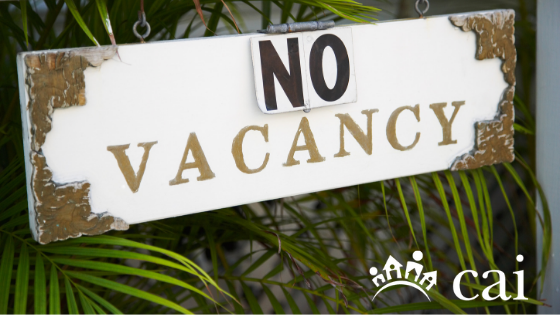Since the housing crisis of 2008, Wall Street real estate investment companies have purchased a huge inventory of homes, typically through foreclosure, that were left abandoned by homeowners unable to pay their mortgages.
According to a CoreLogic Special Report released in 2018, the share of home sales bought by investors reached its highest level in two decades as real estate investment companies purchased 1 in 5 homes in the bottom-third price range during the year. “These are the homes that first-time homebuyers would logically be buying,” said Ralph McLaughlin, deputy chief economist at CoreLogic.
It is an important piece of information to keep in mind as the affordable housing crisis becomes a top legislative issue in 2020. Community associations are facing an imminent threat of legislation impacting their ability to adopt and enforce rental restrictions on real estate investment companies buying up homes. This is important because the business model of these companies is to generate revenue by turning these homes into long-term rentals.
As a result of this looming legislative threat at the state level, community associations may want to consider beginning the process of engaging homeowners in the conversation on whether the community should adopt rental restrictions.
Real estate investment companies have run into challenges with covenants restricting rentals because they were either unaware of rental restrictions or the covenant was adopted after they purchased the home. In response to these challenges, this year, these companies hired lobbyists in North Carolina and Tennessee hoping to pass legislation that would prohibit community associations from adopting and enforcing new covenants restricting rentals. The CAI legislative action committees in both states spent tremendous time and effort fighting this legislation and, in both cases, the legislation failed.
The activity in North Carolina and Tennessee appeared to be pilot programs. Recently, I heard from a very reliable source that the real estate investment companies’ lobby is planning an aggressive pursuit of legislation in 2020 to prohibit community associations from adopting covenants that restrict long-term rentals.
According to ManageCasa.com, rents continue rising in 92% of U.S. cities, including in Las Vegas, Phoenix, Atlanta, Orlando, Fla., Tampa, Fla., and Boise, Idaho. Consistent increases in rental prices attract real estate investment companies to purchase more homes, as their returns are greater.
Clearly, real estate investor owners have different priorities for their community than the individual homeowner. A real estate investment company is solely interested in generating revenue. Homeowners, on the other hand, are interested in the character of their community. The 2018 Homeownership Satisfaction Survey, published by the Foundation for Community Association Research, indicates that the best aspects of living in a community association for individual homeowners are the maintenance-free factor, cleanliness/attractiveness, safety, property values, amenities, and responsible neighbors.
CAI believes governance should be allowed to occur at the lowest possible level, and legislative bodies and regulatory agencies should acknowledge the right of self-determination by the consensus of owners in the community.
Nearly all declarations that govern community associations contain an amendment provision that allows a community to engage owners to consider changes to restrictive covenants. Some declarations require that modifications be approved by most of the homeowners, while others may require a supermajority approval.
If most homeowners believe rental restrictions are right for the community, the association should adopt covenants accordingly. If most homeowners want to allow rentals, that’s great too. What’s important is that community associations have the authority and autonomy to make these important decisions without government interference.
This article first appeared in Common Ground Sept/Oct 2019.




Do the homeowners need to vote on adopting the restrictions for rentals?
Every community association has their own governing documents that outline the rules/covenants that currently exist and the process homeowners must follow to make changes to the rules. Please contact your community association board for more details.